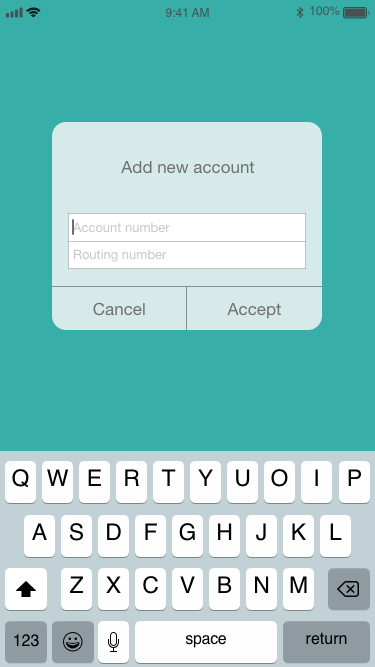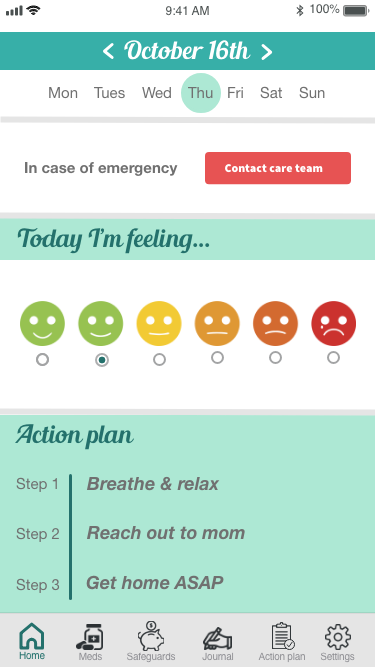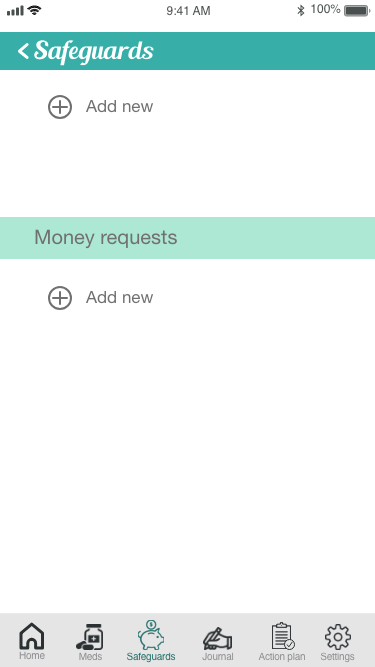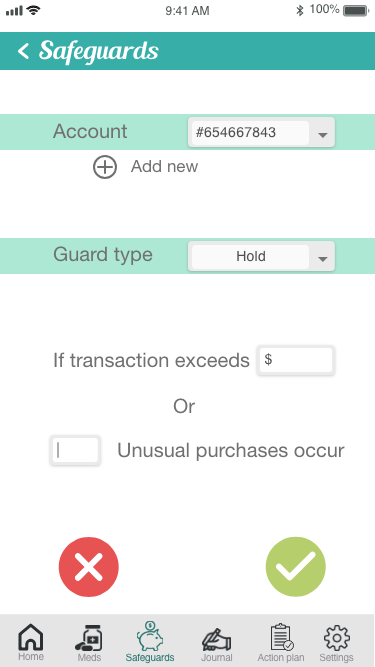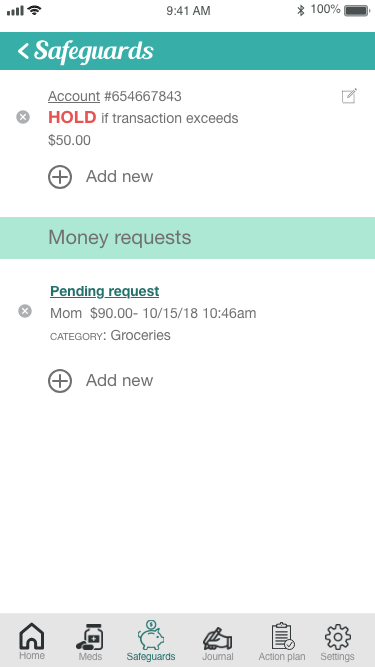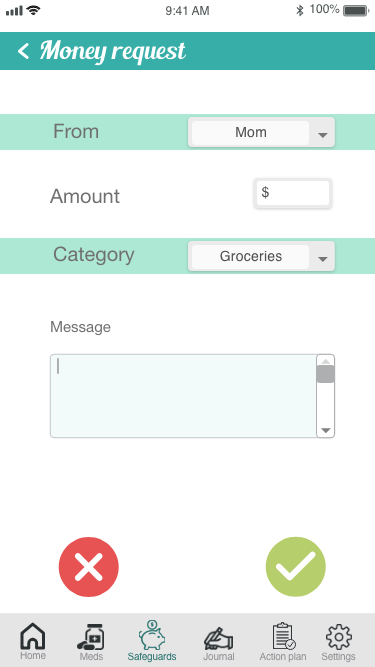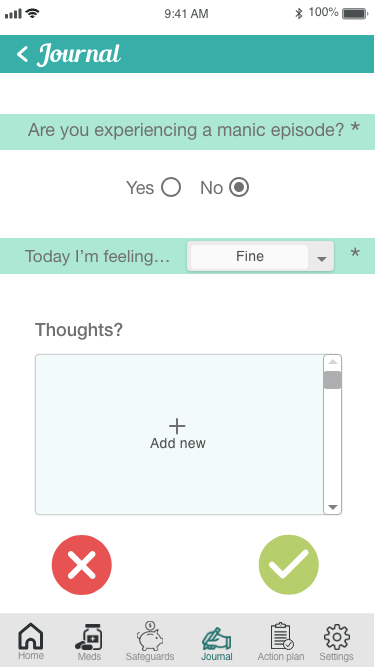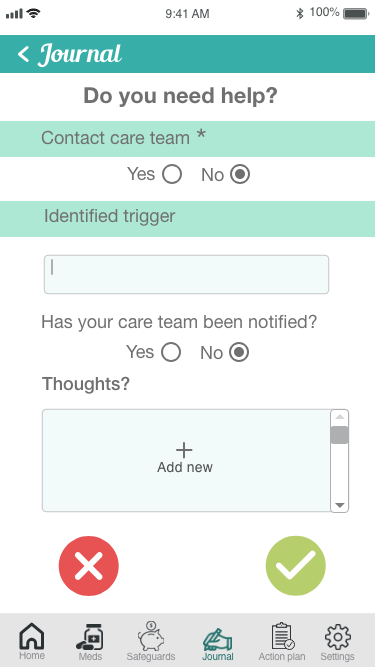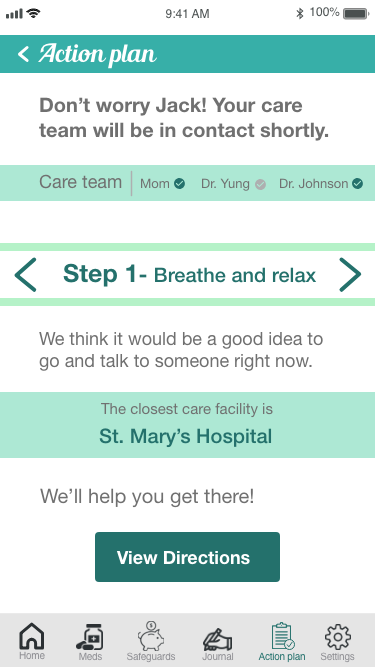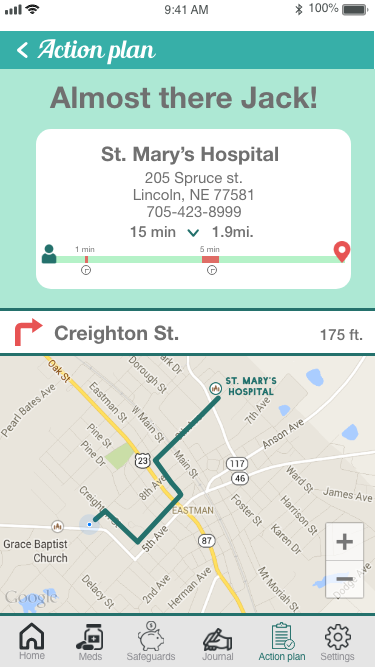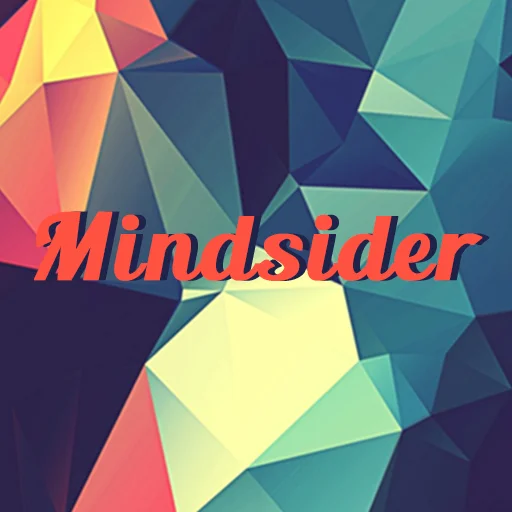mobile App designed for users with Bipolar disorder
Problem
People living with Bipolar Disorder have few patient-centered self-navigated resources to help mitigate the consequences of manic episodes and other symptoms of the disorder.
There are some existing resources with limitations:
Apps exist to help mitigate Bipolar Disorder symptoms, but have limited functionality and are not tailored to user’s needs
Algorithms that predict the onset of manic episodes exist but are being used to target advertising to and thus exploit people living with Bipolar Disorder
How can we help people living with Bipolar Disorder to use available technology to regulate and take back control of their lives by predicting the onset of manic episodes?
Solution
Based on my research I determined that users with Bipolar Disorder are in need of a solution that not only tracks their behaviors and symptoms, but also provides an early warning system for the onset of a manic episode.
This solution needs to be handy and something that users would check multiple times daily so that they could be aware if an alert came through. A mobile application would serve as an ideal platform, as most people have and use a cell phone regularly, often for both personal and professional use.
User research
Due to the sensitive nature of this subject and constraints regarding patient privacy and ethics, I was unable to conduct user interviews during the formative-research stage of this project. However, as a proxy I:
Reviewed first-hand accounts published online via video journals of persons diagnosed with Bipolar Disorder describing their experiences living with the disorder
Literature review of scholarly articles on Bipolar Disorder and symptom management
Conducted an product comparison of existing technology and applications for symptom-tracking and bipolar symptom management
In order to tailor a solution to people with Bipolar Disorder, I needed to have a better understanding of what it is like to experience a manic episode - what happens, how it feels, who it affects.
I was able to get a clearer picture of what mania looks like from these video journals; many expressed the desire to take back control of their lives, because as of now they are at the will of their unpredictable manic episodes.
I found this journal exceptionally helpful.
It features a woman discussing how her and her husband have learned to manage his manic episodes by trial and error and a lot of communication.
I also learned that apps already exist that attempt to treat and help those with Bipolar Disorder. There were several issues with existing apps that I found, including app that:
Do not provide accurate information
Use singular instead of multifaceted approach to symptom monitoring
Do not provide patient privacy
Lack features tailors to users with Bipolar Disorder
Do not utilize evidence-based intervention methods
I therefore ventured to create a user-centered mobile application to help people with Bipolar Disorder track and mitigate their symptoms.
Paper prototype
Mocks

